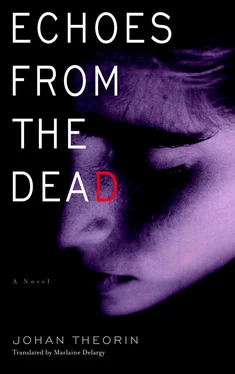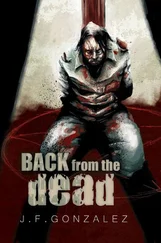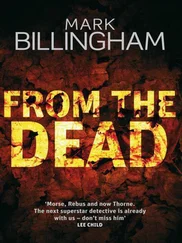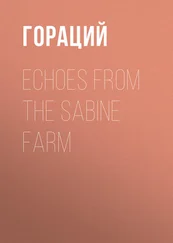On the way home from Långvik she stopped on the coast road above the deserted shore, watching the water turn to foam as the waves scurried in down below, and she wept for over ten minutes.
She knew, and the certainty was terrible. It was as if only a few days had passed since Jens’s disappearance, as if all her internal wounds were still bleeding. Now she was starting to let him into her heart as a dead person, little by little. It had to happen slowly, otherwise the grief would drown her.
Jens was dead.
She knew it. But still she wanted to see her son again, see his body. If that wasn’t possible, then she at least wanted to know what had happened to him. That was why she was here.
Her tears dried in the wind. After a while Julia got back on her bike and cycled slowly on her way.
By the quarry she met Astrid, out walking the dog; she invited Julia back for dinner and didn’t comment on Julia’s eyes, puffy with weeping.
Astrid served cutlets, boiled potatoes, and red wine. Julia ate a little and drank a good deal more, more than she should have done. But after three glasses of wine the idea that Jens had been dead for a long time was not quite so intrusive, it was merely a dull ache in her breast. And there had never been any hope, after all, not after the first days had passed with no sign of life. No hope...
“So you went to Långvik today?”
Julia’s brooding thoughts were interrupted, and she nodded.
“Yes. And yesterday I was in Marnäs,” she said quickly, to get away from the thought of Långvik and Lambert Nilsson’s accurate dreams.
“Did anything happen up there?” asked Astrid, tipping the last of the wine into Julia’s glass.
“Not much,” said Julia. “I went to the churchyard and saw Nils Kant’s grave. Gerlof thought I ought to see it.”
“Nils’s grave,” repeated Astrid, lifting her wineglass.
“One thing I was wondering,” said Julia. “You might not be able to tell me, but those German soldiers Nils Kant killed on the alvar... Did many of them come to Öland?”
“Not that I know of,” said Astrid. “There were maybe a hundred or so who managed to make it to Sweden alive from the war in the Baltic countries, but most of them came ashore along the coast of Småland. They wanted desperately to go home, of course, or to travel on to England. But Sweden was afraid of Stalin, and sent them back to the Soviet Union. It was a cowardly thing to do. But you must have read about all this?”
“Yes, a little bit... but it was a long time ago,” said Julia.
She had a vague memory from her school days of reading about war refugees from Russia, but at the time she hadn’t been particularly interested in Swedish history, or the history of Öland.
“What else did you do in Marnäs?” said Astrid.
“Well... I had lunch with the policeman there,” said Julia. “Lennart Henriksson.”
“He’s a nice man,” said Astrid. “Very stylish.”
Julia nodded.
“Did you talk to Lennart about Nils Kant?” asked Astrid.
Julia shook her head, then thought about it and added:
“Well, I did mention that I’d been to see Kant’s grave. But we didn’t talk about it any more.”
“It’s probably best not to mention him to Lennart again,” said Astrid. “It upsets him a bit.”
“Upsets him?” said Julia. “But why?”
“It’s an old story,” said Astrid, taking a gulp of her wine. “Lennart is Kurt Henriksson’s son.”
She looked at Julia with a serious expression, as if this should make everything clear.
But Julia just shook her head uncomprehendingly.
“Who?” she said.
“The police constable in Marnäs,” explained Astrid. “Or the district superintendent, as he was called in those days.”
“And what did he do?”
“He was the one who was supposed to arrest Nils Kant for shooting the Germans,” said Astrid.
Nils Kant is sawing the end off his shotgun.
He is standing out in the heat of the woodshed where the birch logs are stacked right up to the roof, his back bent. The pile of wood looks as if it might topple over onto him at any moment. His Husqvarna is lying on the chopping block in front of him, and he has almost sawn right through the barrel. His booted left foot is resting on the butt of the gun and he is working the hacksaw with both hands. Slowly but with determination he saws through the barrel, occasionally waving away the flies that buzz around the shed, constantly trying to land on his sweaty face.
Outside everything is as silent as the grave. His mother Vera is in the kitchen, sorting out his rucksack. A tense air of waiting fills the warm spring air.
Nils keeps on sawing, and at last the blade bites through the final millimeter of steel and the barrel falls onto the stone floor of the woodshed with a brief metallic clang.
He picks it up, shoves it in a little hole near the bottom of the woodpile, and sets the saw on the chopping block. He takes two cartridges out of his pocket and loads the gun.
Then he goes out of the shed and places the shotgun in the shadow by the door.
He’s ready.
It’s four days since the shooting out on the alvar, and now everybody in Stenvik knows what’s happened. GERMAN SOLDIERS FOUND DEAD — EXECUTED WITH SHOTGUN was splashed across the front page of yesterday’s newspaper, Ölands-Posten. The headline was just as big as when the forest near the shore outside Borgholm was bombed three years earlier.
The headlines are a lie — Nils didn’t execute anyone. He was caught up in a gun battle with two soldiers, and he was the one who won in the end.
But perhaps not everyone will see it that way. For once, Nils went down into the village in the evening, walking along the road past the mill, and he was met by the silent gaze of the millers. He didn’t say anything, but he knows they are talking about him behind his back. There’s gossip. And stories about what happened out on the alvar are spreading like rippling circles on the water.
He goes into the house.
His mother Vera is sitting there silent and motionless at the kitchen table with her back to him, looking out through the window over the alvar. He can see that her narrow shoulders are tense with anxiety and sorrow beneath her gray blouse.
Nils’s own fears are equally wordless.
“I think it’s probably time now,” he says.
She merely nods, without turning around. The rucksack and the small suitcase are on the table beside her, all packed, and Nils walks over and picks them up. It’s almost unbearable; if he tries to say anything else his voice will be thick with tears — so he simply leaves.
“You will come back, Nils,” say his mother behind him, her voice hoarse.
He nods, although she can’t see it, and takes his blue cap off the peg by the door. His copper hip flask is hidden in the cap, filled with brandy. He pushes it into his rucksack.
“Time to go, then,” he says quietly.
He has his wallet with his own traveling money in his rucksack, as well as twenty substantial notes from his mother rolled up and tucked into his back trouser pocket.
He turns around in the doorway. His mother is now standing in the kitchen, her profile toward him, but she still isn’t looking at him. Perhaps she can’t do it. Her hands are clasped over her stomach, her long white nails digging into her palms; her mouth is trembling.
“I love you, Mother,” says Nils. “I’ll be back.”
Then he walks quickly out of the door, down the stone steps, and into the garden. He stops briefly by the woodshed to pick up his shotgun before going around the house and in among the ash trees.
Nils knows how to leave the village without being spotted. He stoops and moves along the cow paths, through the dense thickets far away from the road, climbing over lichen-covered stone walls and stopping occasionally to listen for whispering voices beyond the humming of the insects in the grass.
Читать дальше












